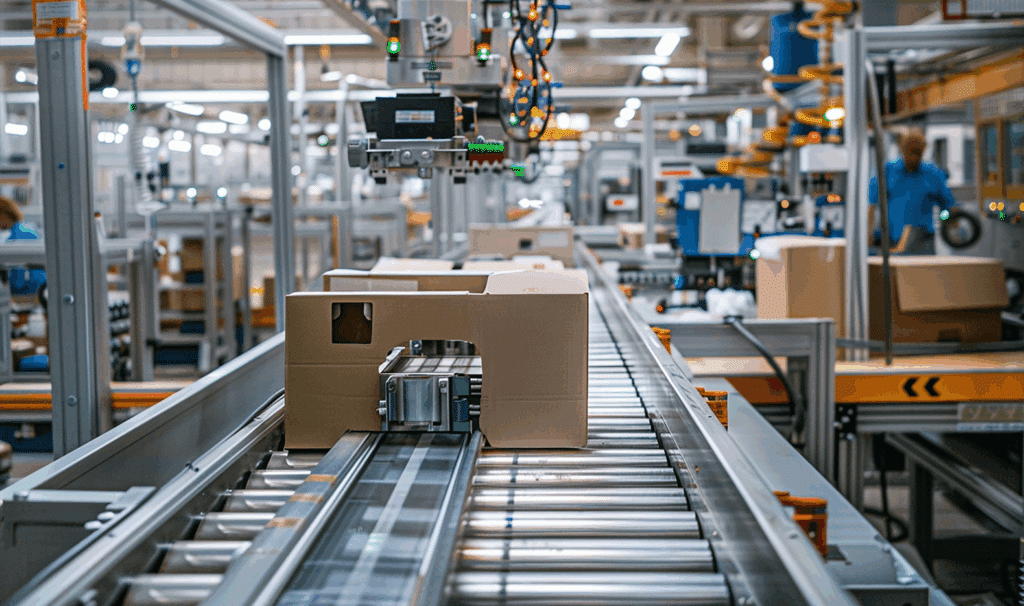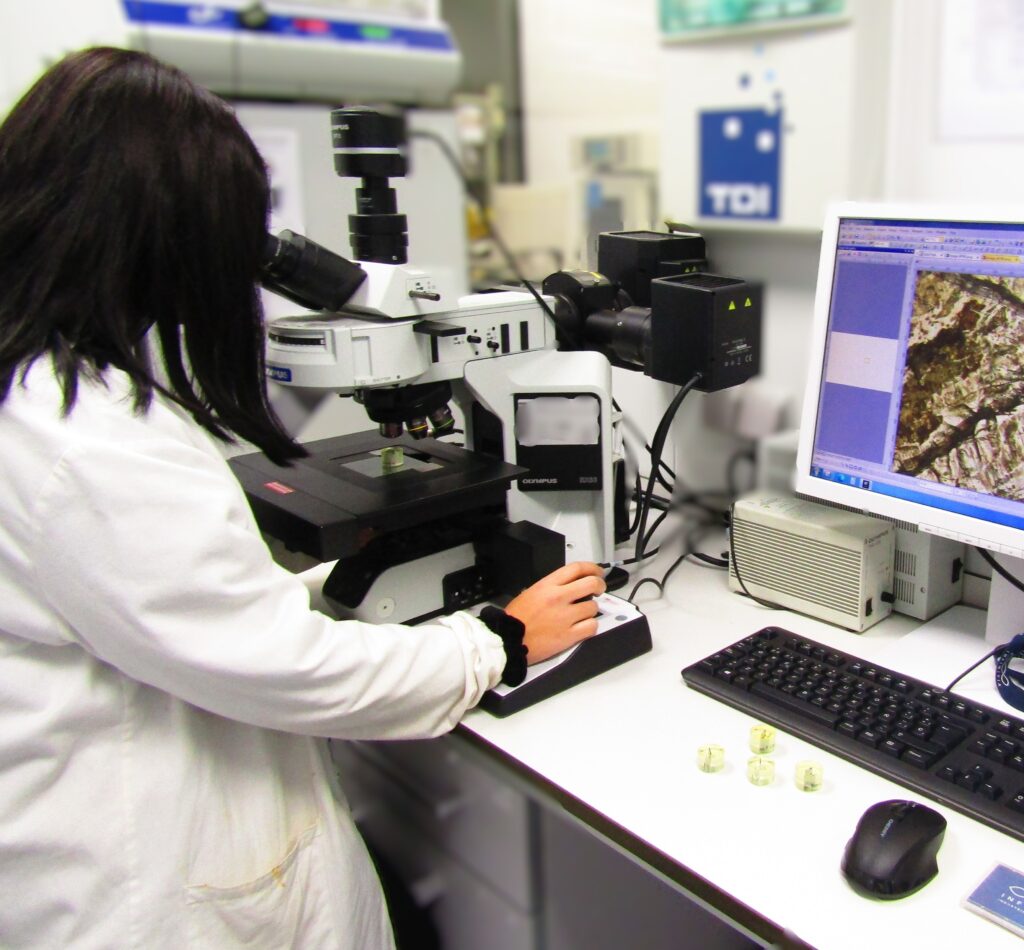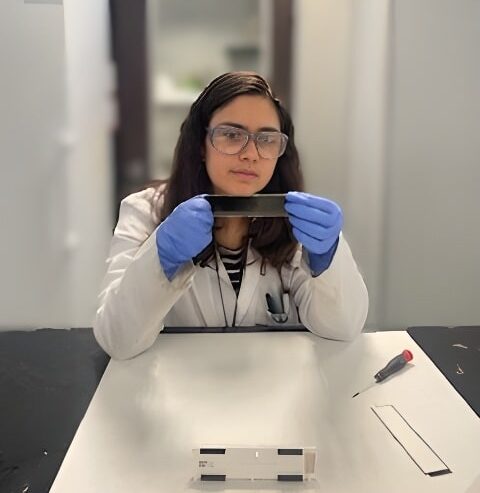Detection of counterfeit components
The detection of counterfeit components is an essential service to guarantee the authenticity, quality and reliability of materials and products used in industrial environments.
At INFINITIA Industrial Consulting, we offer this service as part of our specialisation in forensic engineering and advanced material characterisation.
Our industrial laboratory, equipped with state-of-the-art technology and a multidisciplinary team, allows us to rigorously verify suspicious components, comparing original parts with others of unknown origin, with the aim of identifying possible counterfeits and ensuring that they comply with technical specifications.
This work not only protects the integrity of the final products, but also prevents economic and reputational risks arising from the use of non-compliant components.
What does component counterfeit detection involve?
This service consists of a series of comparative analyses between reference parts, technical data sheets or bibliography and components under study, using reverse engineering, mechanical testing and chemical characterisation techniques.
At INFINITIA, we analyse the morphological, compositional and functional properties of components to detect possible inconsistencies with their technical specifications.
Through tests such as elemental analysis, spectroscopy, mechanical tests or inspection using electron microscopes, our team can identify alterations in the composition or performance of the material that reveal the presence of counterfeits.
This methodology is adapted to the regulatory requirements of the sector and the specific characteristics of the component under study, guaranteeing accurate and reliable results.

Benefits of component counterfeit detection
The main benefit of component counterfeit detection is its ability to prevent production failures or product defects from reaching the market, protecting both the supply chain and the manufacturer’s liability.
This type of analysis allows companies to technically demonstrate that a defective batch does not meet the required quality, thus facilitating claims against suppliers or decision-making in the approval of new supplies.
Component counterfeit detection at INFINITIA
At INFINITIA, we approach counterfeit detection from a comprehensive perspective, combining expertise in forensic engineering, material innovation and regulatory interpretation.
Our team selects the most appropriate techniques based on the type of component and the suspicions raised: comparative analysis of mechanical properties, evaluation of chemical composition using spectroscopic techniques, or structural inspections using advanced microscopy. We then compare the results with the technical data sheet of the original component or the reference material to identify critical deviations.
This systematic approach, together with our ability to tailor tests to customer needs, makes us a reliable partner in preventing problems caused by the use of incorrect components.

Types of tests for detecting counterfeit components
At INFINITIA, we develop different types of tests to identify counterfeit components, verify their authenticity and compare them with original parts.
Our goal is to confirm that they meet technical specifications through chemical, structural, functional and mechanical analyses, all from a forensic engineering approach applied to the industrial environment.
Chemical composition and structure tests
These tests identify the constituent elements of a sample and their internal chemical distribution. We use techniques such as infrared spectroscopy (FTIR), X-ray fluorescence (XRF), EDX microanalysis and mass spectrometry, among others.
At INFINITIA, we apply these techniques to detect alterations in the composition of metal alloys, surface coatings or technical plastics. For example, we have identified differences in additives and mineral fillers in industrial polymer parts that turned out to be counterfeits.
Microscopy and morphological analysis tests
Microscopy allows us to observe the internal and surface structures of the suspect component. We combine optical microscopy, SEM (scanning electron microscopy) and laser profilometry to detect porosity, cracks, manufacturing marks and other signs of counterfeiting.
In a recent case, we observed manufacturing defects on the surface of counterfeit electronic connectors using SEM, which enabled the customer to reject non-compliant batches and review their supply chain.
Comparative mechanical testing
Tensile, hardness or elastic modulus tests allow us to compare the mechanical behaviour of original and suspect parts. These tests are key to assessing whether the component meets the requirements for strength and elasticity.
At INFINITIA, for example, we perform tensile tests to validate the rigidity of supposedly certified metal shafts. The results revealed lower resistance than specified, subsequently confirming counterfeiting.
Thermal testing and stability analysis
These tests help us to check the thermal stability and transition properties of plastic or composite materials. We use techniques such as differential scanning calorimetry (DSC) or thermogravimetric analysis (TGA) to observe differences between batches.
In an analysis carried out by INFINITIA on plastic containers, we detected a lower glass transition temperature than the original product using the DSC technique, indicating the use of a material other than that requested.
Electrical and functional tests
When it comes to electronic components, we measure resistance, capacitance, insulation and functional response. These tests allow us to identify operational variations between original and counterfeit components.
In a previous project, INFINITIA tested several batches of sensors. Electrical tests revealed resistance values outside the acceptable range, confirming the functional incompatibility of the batches purchased.
Applications of component counterfeit detection
Counterfeit detection has direct applications in multiple industrial sectors.
Thanks to our analyses, at INFINITIA we help prevent production failures, identify those responsible within the supply chain and ensure the quality of products in actual use. Below are some of the sectors where this service offered by INFINITIA provides significant added value:
Automotive industry
In the automotive industry, the introduction of counterfeit parts compromises the safety of the end user. Counterfeit detection ensures the compliance of components in this sector.
- Comparison of the composition of batches of metal fasteners received with variations after elemental composition analysis using SEM.
- Validation of plastic components exposed to temperature cycles using thermal analysis.
Electrical and electronic components
The proliferation of counterfeit electronic components affects equipment performance and network reliability.
- Visual and SEM inspection of welds on suspicious boards.
- Electrical resistance analysis of chips to check circuit response.
- Dimensional and morphological validation of connectors against the manufacturer’s technical data sheets.
Industrial equipment
In industrial machinery, counterfeiting can cause mechanical or electrical failures with serious consequences for operation.
- Comparison of hardness and elastic modulus in shafts and gears.
- Analysis of coatings to evaluate composition and ensure chemical resistance.
Medical and pharmaceutical sector
Medical equipment and its components must guarantee safety and traceability. Detection of counterfeits helps to maintain regulatory standards.
- Chemical resistance testing on polymers in disposable devices.
- Thermal and stability analysis on sterilisable components.
Counterfeit detection: An investment in industrial reliability
The detection of counterfeit components has become a critical necessity to guarantee the quality, safety and reliability of industrial products. Through advanced techniques in forensic engineering, reverse engineering and material characterisation, at INFINITIA we offer comprehensive solutions to compare original parts with suspicious ones, identifying deviations in their chemical composition, internal structure, functionality or mechanical resistance.
Our tests enable us to detect non-compliant components before they reach production lines or the market, helping our clients to avoid critical failures, strengthen their quality control processes and hold suppliers accountable when necessary. In addition, we provide detailed technical reports that serve as support in audits, claims or certifications, providing maximum traceability and scientific rigour.
The growing sophistication of counterfeiting, especially in sectors such as electronics, automotive, medical devices and energy, makes it essential to have a specialised laboratory such as INFINITIA, capable of adapting verification tests to each type of component and specific regulations.

Relying on INFINITIA not only provides an immediate technical response, but also represents a strategic investment to strengthen the supply chain and protect product integrity.
If your company needs to verify the authenticity of components, identify counterfeits or strengthen its approval and validation processes, you can count on INFINITIA Industrial Consulting. Our team combines experience, technology and a scientific approach to help you make informed decisions with complete confidence.


